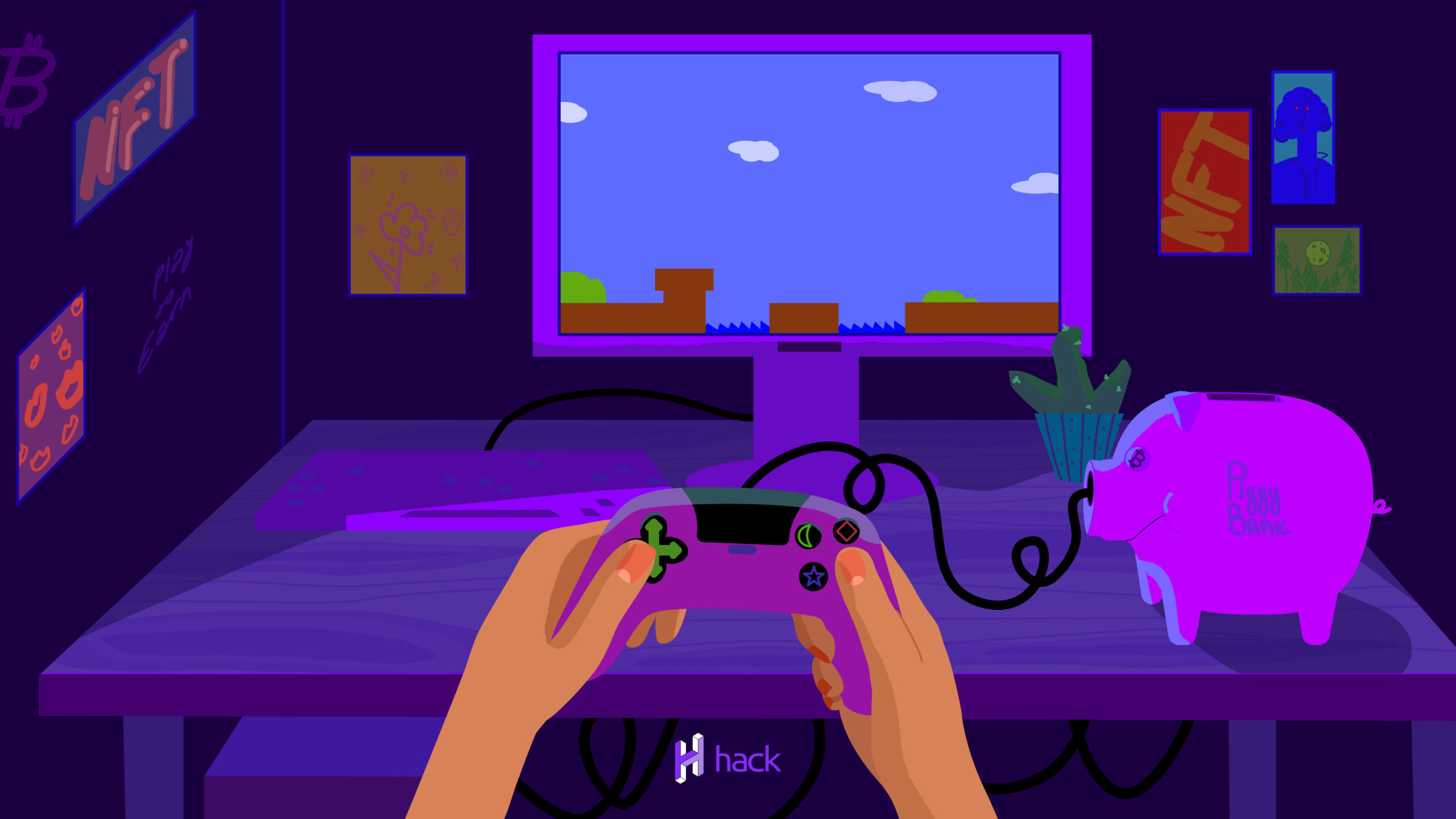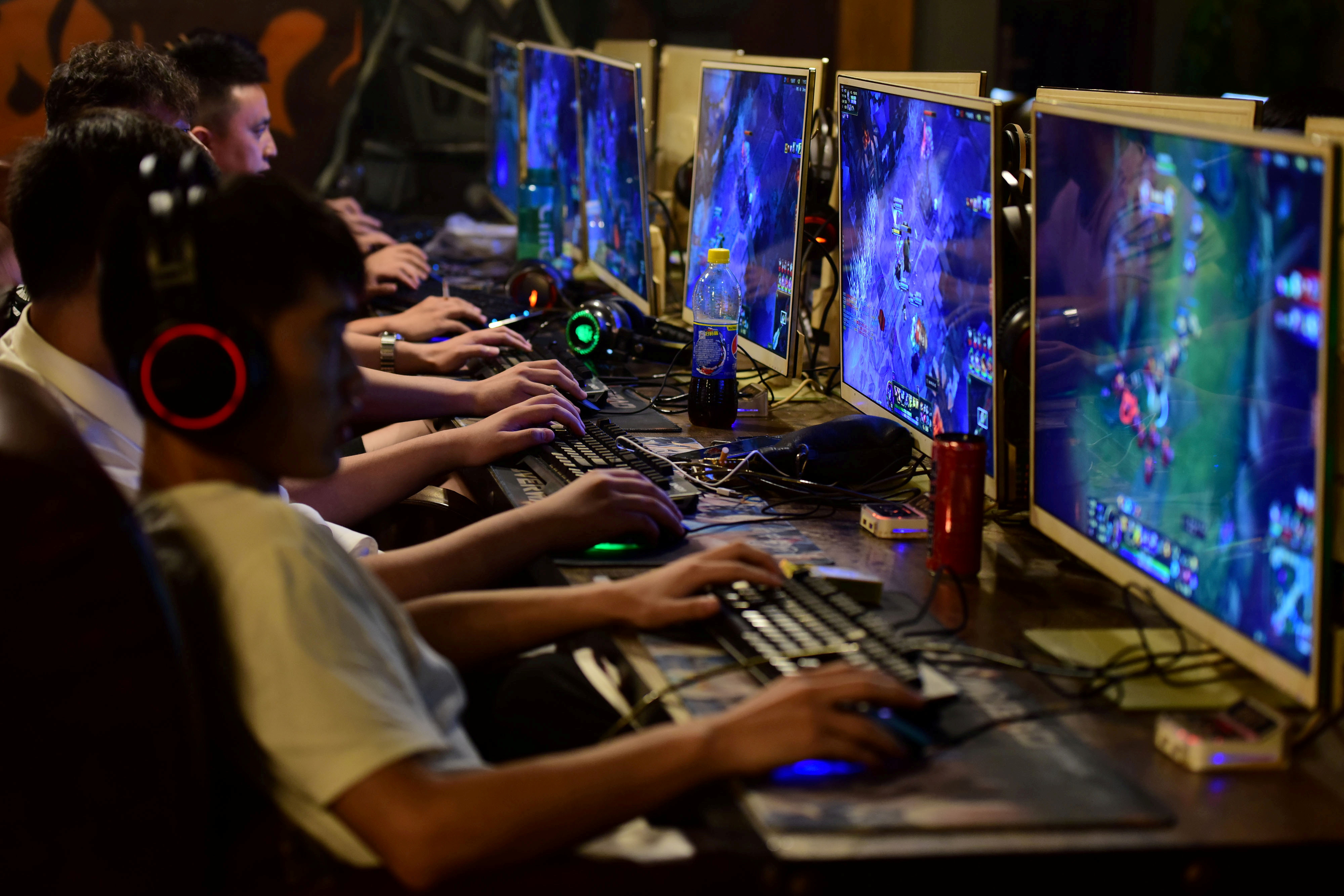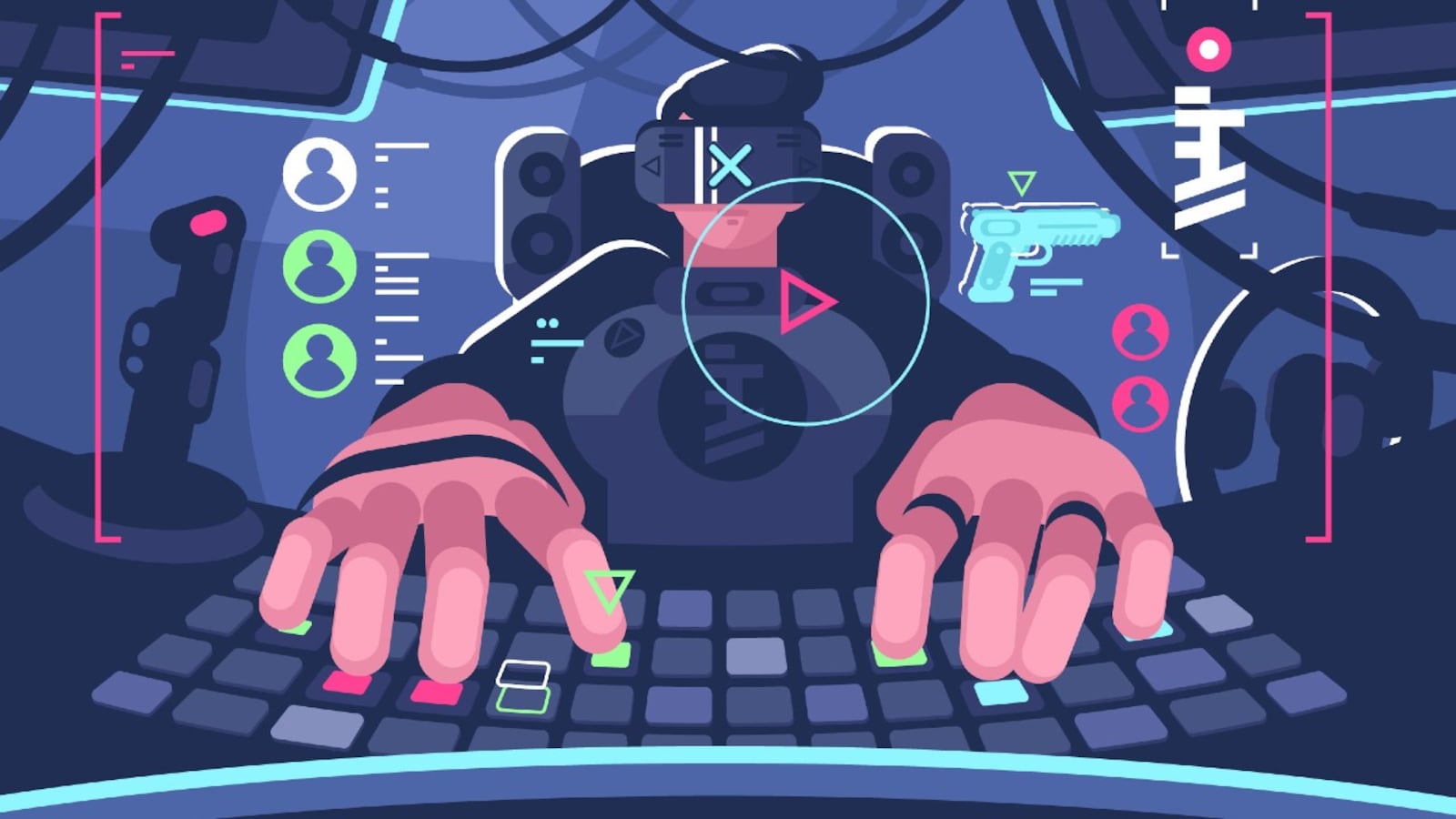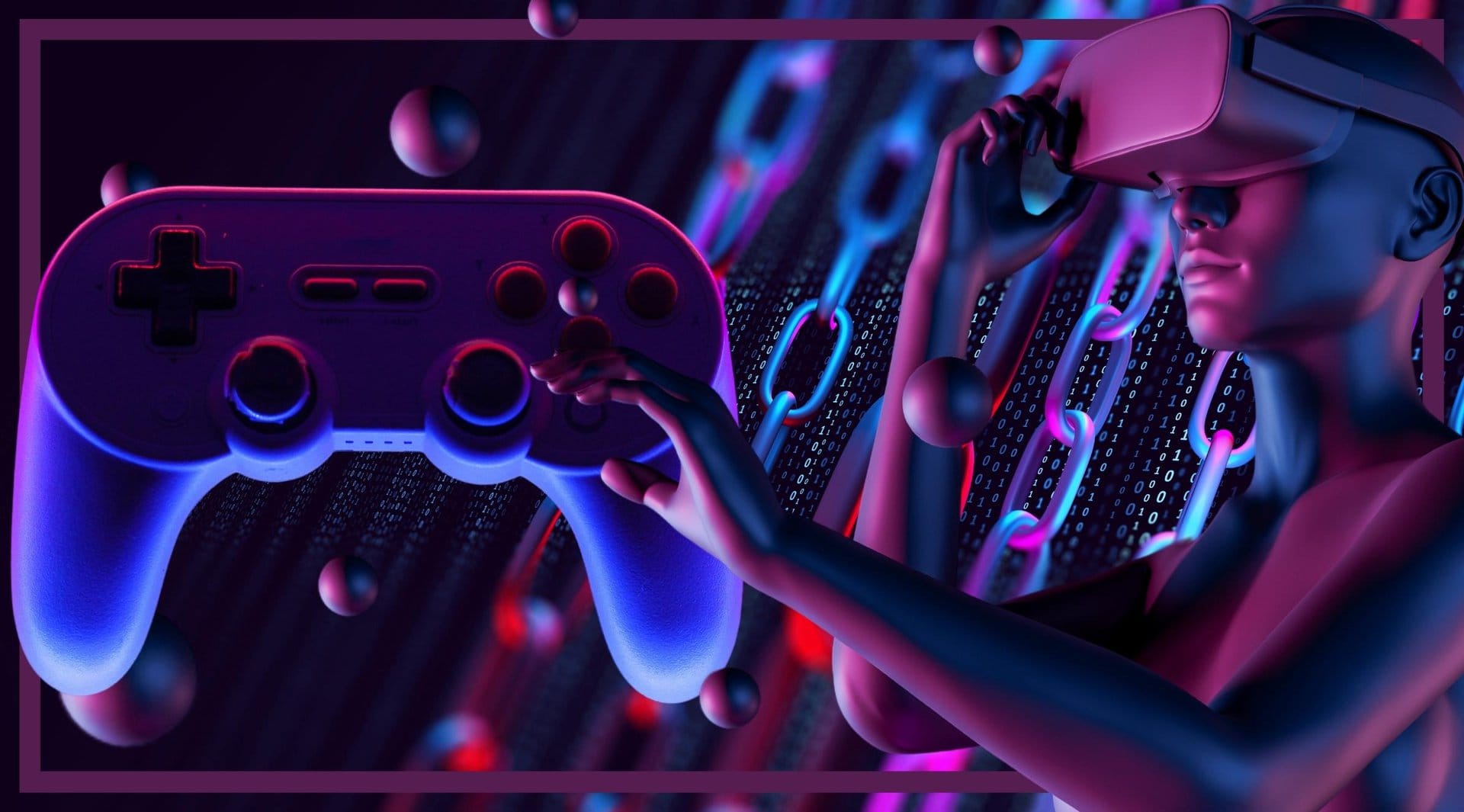Gaming and Web3: A positive change towards economy?

Gaming and Web3: A positive change towards economy?
The transition to Web 3.0 aims to build an internet user ecology based on blockchain technology, an open ledger that is extremely secure, transparent, and decentralized. With the launch of Play-To-Earn (P2E) games, gamers all around the world have participated in the shift from Web 2.0 to Web 3.0.
Users can own NFTs, which are governed by smart contracts, thanks to the decentralized nature of blockchain technology. By recording and verifying ownership on an open ledger that is visible, immutable, and secure, these smart contracts enable players to own and trade digital tokens. NFTs have been successfully used by many businesses, celebrities, and the gaming industry to engage with new audiences and develop new revenue streams. The excitement and interest surrounding NFTs have never been higher since they also provide an investing opportunity. As a direct result of the confluence of tokens, blockchain, and AI, gaming businesses are aiming to produce Web 3.0-based games.
Playing video games will enable users to make money in the Web 3 era. Users in this new gaming era can buy products from the market with their own money and sell them to other players either within the game or outside of the virtual world. Video game in-app purchases earned through in-game IAPs account for more than half of all gaming revenue. Online game players do not truly own the in-game stuff they purchase, even if they do. IAPs are the sole way to access the unlimited supply of in-game stuff.
In Web 3.0, when a player purchases an asset, it will be linked to them rather than the game, protecting both their earned financial resources and the priceless objects they have stored in their accounts. Once outside of the game, players are free to retain and sell these virtual goods. With the advent of web 3.0, the gaming business is evolving, which has led to a rise in web 3.0’s use cases in that sector.
Niche communities have emerged as a result of Web 3.0, and NFTs are the hottest new digital products. These tokens are mostly sold on NFT marketplaces and are gradually replacing other in-game currencies in P2E games. Web 3.0 games offer another benefit over Web 2.0 games in that they are open source, allowing players to customize the experience to suit their requirements.
Single-point failures are common in traditional online games, but blockchain technology improves this experience by giving players more consistent and interesting alternatives. Since players are directly responsible for the games’ success, their control will eventually dominate how valuable the games are. In a way, the idea of limitless gaming has finally come true!
These and other factors combine to make Web 3.0 gaming a more appealing option than web 2.0 gaming. The future of gaming is getting ready to change as a community-driven ecosystem supported by a just and equal piece of technology emerges. Global audiences have taken a big interest in the well-known Web 2.0 fantasy sports leagues, and the following NFT-based fantasy sports leagues are now something they are anticipating. Not only is it projected that the gaming industry would face major upheaval, but also growth. The gaming industry is anticipated to adapt to Web 3.0 and the present financial climate. In addition to the gaming business as a whole, gamers and everyone else engaged will benefit.
You may now properly answer if your parents have ever reprimanded you for playing video games when you should be doing anything else. An industry that was primarily a platform for entertainment and sports is being reinvented as a freshly minted creative economy thanks to Web 3 gaming and ongoing game-streaming efforts. It makes sense considering that, according to a recent KPMG estimate, the nation’s $1.8 billion gaming sector is anticipated to triple in size to $3.9 billion by 2025.
A decade ago, the majority of people’s knowledge of gaming was largely limited to its Web 1 or Web 2 gaming predecessors. Solo gaming on early console setups dominated Web 1. You engaged in self-competition by repeatedly rehearsing game scenarios to lower your time and score. Word games, Sudoku, and other simple one-player games are still imitations of Web1 gaming. Even while it was entertaining, the absence of participation did not nearly lead to the emergence of widespread gaming culture. That was accomplished via Web 2.
The experience of playing online games experienced a significant transformation with the development of technologies that allowed connectivity and interaction across several computers. By logging into the social gaming revolution from your home, you may now play multiplayer games with anybody in the world. In the Web 2 era, you made online acquaintances, spoke with others who shared your interests and belonged to groups that came together around gaming and esports. However, the ecosystem of the game publisher, developer, and broadcaster still had a significant impact on that experience. Web3 wants to reinvent game experiences by giving the player control.
Players holding the sway

Independence, consent, and cooperation are the three main components of the Web3 experience. Giving gamers a voice by moving control from a centralized authority or gaming company to a DAO is the idea behind this project (which is essentially regulated by pre-set community rules enforced via a blockchain).
It starts by providing you authority over who has access to certain in-game things (such as cash, tokens, drops, skins, etc.). You may freely trade them without worrying about losing your privacy, your belongings, or the necessity for a third party’s consent to access your assets. Even ones that aren’t exclusive to any one game are available. The value of your assets is more likely to be preserved when decision-making is decentralized. No longer will a publisher’s arbitrary modification of a game’s rules destroy the value of the items you’ve accumulated through many hours of devoted play.
Additionally, serious and devoted players have the chance to acquire governance tokens, which give them voting rights over how a game develops. If your choices about the gameplay experience, game rules, and even how you are paid for it are well received by the DAO community, they may come to pass. Isn’t that a perfect illustration of democracy in action?
Value for participation and adherence

The most revolutionary component of Web3 gaming is its ability to switch you from play-to-earn models to passive play or pay-to-play (P2P) ones. P2P allows users to pay to upgrade their gaming experience. To generate a steady stream of revenue in such a situation, developers are likely to release changes every few months, which may irritate users. Web3 gaming, in particular Crypto gaming, flips this on its head by paying gamers for the time and work they have put into playing games. It may take the shape of exchangeable cryptocurrencies or NFTs that act as collector’s objects and whose exchange value is set by the buyer and seller without the involvement of any outside authority.
The benefit for developers is that they will receive a tiny portion of each in-game transaction that is recorded on the blockchain, doing away with the need for disruptive upgrades that can harm the user experience. Different organizations and gamers can provide a good amount of liquidity to the gaming industry thanks to the growth of in-game economies. Early examples of the usage of business in game streaming have already started to emerge.
For a good game

By eliminating difficulties with hacking and cheating, decentralized gaming also enhances the game experience. With dispersed servers, the risk of hacking is almost nonexistent, making problems like data loss, cheating, or changing the laws of the game, which can damage the playing experience, unlikely.
Even while a Web3-led world appears imminent, the industrial ecosystem’s rate of evolution will determine how quickly it can realize its full potential. Dispelling misconceptions regarding the feasibility of Web3 game models must be a top priority. Is it feasible to create games that meet every requirement—fun, engaging, and working with a strong reward program—without their being fads that go away quickly?
Next, given that user-generated material is essential to a long-lasting engagement experience today, how prepared are game-streaming firms to offer a platform for original content production and possibilities to make money while you play? Thirdly, serious effort has to be done to establish trustworthy digital assets that wouldn’t be vulnerable to volatility and abrupt price swings, since the ability to monetize is becoming an enticing offer to draw in more gamers. While others contend that viewing video games as an “earning” proposition is narrow-minded, everyone can agree that for the industry to flourish meaningfully, we need to return to the fundamentals.
The basis is developing a fantastic game and playing experience, and everything else is just potential waiting to be realized. The gaming industry is expanding quickly and has tremendous development potential. The CAGR of income from online games is anticipated to reach 40% by 2022, or over 2.8 billion, according to Deloitte’s 2021 forecasts for the Indian gaming business. The decentralized blockchain-based protocol has intentions to enable game developers to produce blockchain-based games and offer the finest gaming experience to gamers all over the world.
Game industry paradigm change

As more and more people become attracted to cutting-edge gaming models like play to earn, the multibillion-dollar gaming industry is expanding at an astounding rate. Due to the advancement of technology, the gaming industry has changed significantly throughout time. As web 3.0 matures and gains traction, players in the game industry are already on the cusp of a paradigm shift.
The gaming industry statistics indicate that by 2021, the APAC gaming sector’s revenue would have surpassed $174 billion. According to reports, the APAC gaming industry as a whole generated $72.2 billion in sales in 2019. As players shift their attention away from video games and toward blockchain-based games in the upcoming years, the income statistics are expected to scale up significantly higher and higher.
The game industry will undergo a dramatic transformation thanks to Web 3.0. The ability to make money while playing games is now available to gamers. Players will have the ability to pay for their purchases in Web 3.0 as well as buy premium assets, sell them to other players within or outside the game, and trade them.
The dynamics of the whole gaming business are already shifting as a result of the shift from free-to-play to play-to-earn gaming. It makes sense that the potential of web 3.0 is increasing the chances for the gaming business, motivating many professionals to continue to invest extensively in the sector’s development.
The Factors Behind the Gaming Industry’s Transition

A particular set of technologies will aid in the entire transfer of gamers to Web 3.0. They consist of the following:
- Blockchain
With 100 million users of blockchain gaming now, the gaming industry is anticipated to reach two billion users soon. Blockchain games are interactive, decentralized, and immutable platforms. Using a blockchain system, gamers in particular will have several options to integrate several games into a single gaming environment.
- NFTs
Non-fungible tokens, commonly referred to as crypto tokens, are composed of digital data that is kept in a blockchain data structure. They may be used to purchase in-game assets and are transferable across wallets. Players who have attained the highest rankings on the leaderboards are the only ones who may earn the current non-fungible NFTs. Within the game platform, only the most uncommon NFTs are transferrable. The game’s resources can be avoided by certain players if the game is already finished.
- Artificial Intelligence
The speed and progressivity of test findings are improved when AI and natural language processing enable computers to comprehend information similarly to humans. AI allows for the rapid and efficient creation of game environments that are populated by non-playable characters but have the appearance of being created for control by human game players.
- Tokens
Incentives for gamers to participate in the gaming business include tokens. The value of these tokens will rise, which will be advantageous for the gaming sector as a whole. Everyone will use this gain in value as a justification for raising the bar on the game. By offering tokens for sale on the market, players will be able to buy the currency.
Increasing Web3’s gaming use cases
The gaming industry is changing as a result of the introduction of web 3.0, and this has created new use cases for web 3.0 in the industry. The advent of web 3.0 has made it possible for game developers to create very scalable projects. Gamefi project owners are attempting to make use of technology that frees games from centralized publication platforms.
As a result, the gamers themselves now wield the power rather than the centralized brands that possess those. As gamers are directly accountable for the game’s success, the value of the games will inevitably become much more concentrated in their control.
Final thoughts

Along with the projected significant shift, the gaming sector is also anticipated to grow. The gaming business is expected to change to accommodate Web 3.0 and the current economic environment. Gamers and everyone associated with the industry will profit in addition to the gaming business. The development of this Web3 gaming platform is being done progressively by gaming businesses. As we build the environment to support actual gaming activities and as the ecosystem keeps growing for more complex types of game investment, there will be a period of substantial progress.




